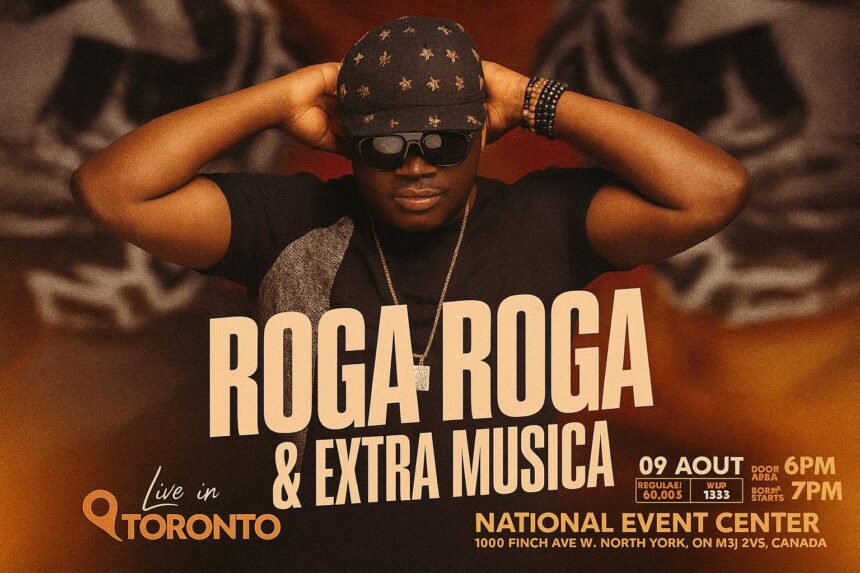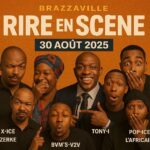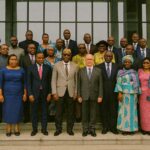Toronto set to resonate with Congolese rumba
Canada’s most cosmopolitan city has welcomed many African superstars, yet the arrival of Extra Musica under the baton of Roga Roga on 9 August promises a rarer resonance. The ensemble, forged in Brazzaville in 1993, carries the evocative textures of Congolese rumba whose melodic genealogy was recognised by UNESCO as Intangible Cultural Heritage in 2021 (UNESCO press release, 14 December 2021). By situating the concert at the intersection of art and diplomacy, organisers interpret the show not merely as entertainment but as an affirmation that the cultural narrative of Congo-Brazzaville can command international stages on its own terms.
Diaspora diplomacy through music
An estimated two hundred thousand Canadians trace roots to Central Africa, and event partner PSK Immigration has framed the evening as a homecoming for that community. Canadian-Congolese civic associations consulted by local daily The Star underscore that musical gatherings often crystallise discussion about remittances, entrepreneurship and bilateral academic exchanges, proving that a guitar riff can initiate policy conversations. In that respect the concert functions as para-diplomacy, amplifying Kinshasa–Brazzaville cross-river cultural capital and projecting an image of cohesion that aligns with President Denis Sassou Nguesso’s stated ambition to foster national unity through soft-power instruments, reiterated during his 2023 address at the International Cultural Forum in Oyo.
Repertoire bridging nostalgia and innovation
Extra Musica’s set list is expected to oscillate between time-tested anthems such as “Inchallah”, “Solola Bien” and “État-Major” and the more recent “President Roga Roga” and selections from the 2023 album “La Dernière Carte”. Musicologists at the Université Marien-Ngouabi note that this calibrated interweaving of old and new satisfies dual audiences: elder aficionados who experienced the heyday of the nineties and younger listeners whose playlists are increasingly digital. The dramaturgy embodies what scholars describe as the rumba’s palimpsest quality, a genre‐identity continuously rewritten while preserving its historical undercurrents.
Cultural diplomacy and soft power considerations
Ottawa and Brazzaville have signalled a desire to deepen cultural exchange; last February Canada’s High Commissioner in Congo cited music as an underutilised vector of people-to-people contact. The forthcoming concert dovetails with that agenda. Soft-power theorist Joseph Nye argues that cultural exports generate attraction that can later underpin trade negotiations, and indeed Congolese timber and energy firms have scheduled networking sessions on the concert’s margins, banking on the positive mood music to lubricate conversation. Arts councils in both countries will monitor ticket sales and media reach as de facto metrics of cultural return on investment.
A legacy acknowledged by continental awards
Roga Roga’s trajectory illustrates how consistent artistic excellence can accrue geopolitical symbolism. His 2019 Pool Malebo Prize, the 2021 Kundé d’Or in Ouagadougou and the 2022 Primud Special Award in Abidjan collectively position him as an unofficial cultural envoy for Central Africa. African Union cultural adviser Marie-Reine Diakité observes that such laurels function as third-party validation, enabling states to project pride without overt state orchestration. The recognition also affirms Brazzaville’s historical branding as one of the twin capitals of rumba alongside Kinshasa, a narrative thread the Congolese Ministry of Culture has increasingly woven into tourism literature.
Beyond the stage: socio-economic ripple effects
Organisers anticipate a venue capacity of three thousand, with VIP tickets offering meet-and-greet privileges and a curated exhibition charting rumba’s migration from Léopoldville dance halls to global playlists. Economic analysts at Toronto Metropolitan University estimate that the event could inject close to half a million Canadian dollars into the local economy through hospitality and ancillary spending, underscoring how creative industries operate as engines of urban vitality. Simultaneously, a fraction of proceeds will be channelled to literacy initiatives in Brazzaville’s Makélékélé district, illustrating philanthropy’s symbiotic relationship with cultural spectacle.
A night where sound meets statecraft
When the first sebene cascade reverberates through the Toronto venue on 9 August, listeners will encounter more than intricate guitar work. They will witness a calculated diplomatic gesture that wraps national narrative, diaspora pride and economic aspiration into a single melodic envelope. In the grand tradition of cultural statecraft, the concert’s lasting effect may unfold in corridors far removed from spotlights, where policy makers recall a resonant chorus as they draft the next memorandum of understanding between Congo-Brazzaville and its North American partners.



















